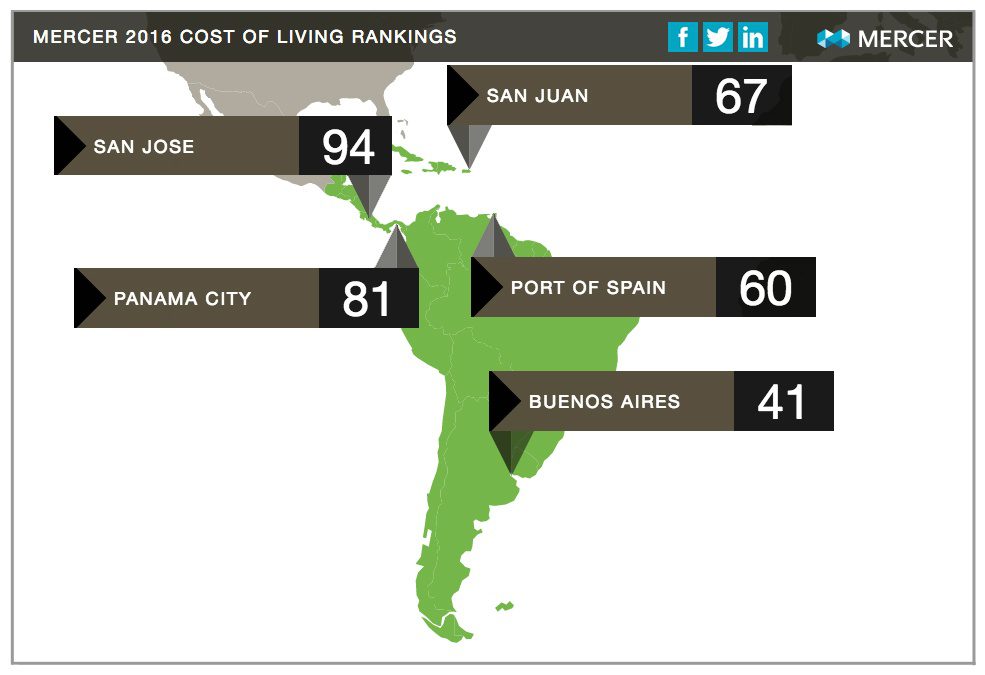Bogotá Is Among the Cheapest Cities in the World for Expat Workers
2 min readDue to the massive devaluation of the Colombian peso over the past two years, Bogotá now has one of the lowest costs of living in the world for expat workers. According to a new study by New York-based human resources consultancy Mercer, the Colombian capital ranks 190th out of 209 cities analyzed in terms of cost. This marks a drop of 42 spots from the 2015 edition of the company’s annual “Cost of Living Survey,” which was recently released for the 22nd straight year.
To calculate results, Mercer measures the cost of over 200 items, from food and clothing to housing and transportation. The study also factors in the various currency fluctuations, cost inflation for goods and services, and instability of accommodation prices that comprise the overall expense for companies that offer expatriate packages to workers on international assignments.
The falling cost in Bogotá comes at the same time — and for largely the same reason — that places in North America are now more expensive to work in. “Most cities in the U.S. have climbed in the ranking, primarily due to a strong U.S. dollar,” said Nathalie Constantin-Métral, principal at Mercer.
Top 5 Cities with Highest Expat Worker Cost of Living, Latin America

Source: Mercer 2016 Cost of Living Survey, (numbers represent overall global ranking)
Buenos Aires, which comes in 41st in the world, ranks as the most expensive location in Latin America. Port of Spain in Trinidad and Tobago (60th), San Juan in Puerto Rico (67th), Panama City in Panama (81st), and San José in Costa Rica (94th) round out the region’s top five costliest locations. The only cities in Latin America with a lower cost of living than Bogotá are Brasilia, Brazil (tied at 190th), and Monterrey, Mexico (198th).
Mercer found Hong Kong to be the globe’s most expensive city for expatriates followed by: Luanda, Angola; Zurich, Switzerland; Singapore; Tokyo, Japan; Kinshasa, Democratic Republic of the Congo; Shanghai, China; Geneva, Switzerland; N’Djamena, Chad; and Beijing, China.
While companies sometimes have no choice but to send employees to where the work is, the price of the location can sometimes decide how eager a firm is to give its workers assignment abroad. “Deploying expatriate employees remains an increasingly important aspect of a competitive multinational company’s business strategy,” said Ilya Bonic, senior partner at Mercer. “However, with volatile markets and stunted economic growth in many parts of the world, a keen eye on cost efficiency is essential, including a focus on expatriate remuneration packages.
Photo Credit: Juan Carlos Pachón



